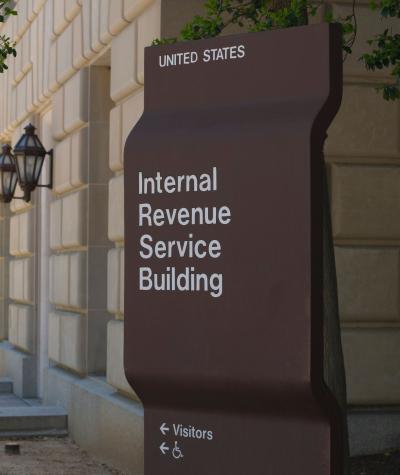The American people strike a bargain with nonprofit groups: nonprofits get a break on their taxes but must agree to make much of their tax return public.
This transparency is especially important for certain groups that devote huge sums to political spending but organize as “social welfare” nonprofits under section 501(c)(4) of federal tax law in an attempt to keep the sources of that spending secret.
Also known as “dark money” groups, these entities use this secret money to rig the political system in favor of the wealthy special interests that provide it.
Financial information about 501(c)(4) nonprofits, like their revenue, spending and highest-paid officials, is supposed to be available on the IRS website free of charge. But in recent years, the IRS's public disclosure of these groups’ tax returns, known as Form 990s, has practically ground to a halt.
Meanwhile, the groups continue to be used as a vehicle to funnel dark money into our elections at an alarming rate, exploiting shortcomings at the agency while hiding political spending from the public.
These Form 990s are one of the last remaining resources that help shine a light on unlimited election spending by wealthy special interests following the U.S. Supreme Court's infamous decision in Citizens United v. Federal Election Commission (FEC). They can reveal how secret political cash is being used and where.
Federal law prohibits 501(c)(4) nonprofits from engaging in campaign politics as their primary purpose. A group’s Form 990 can provide information about whether it’s abusing the tax code to serve principally as a conduit for secret campaign spending.
Without access to this information, the American people are left in the dark just as another election-season festival of secret political spending is ramping up.
There's no indication this is a deliberate move by the IRS. The most likely culprit is short-staffing at the agency, which has reached crisis levels during the COVID-19 pandemic. But the implications for transparency are no less dire. Some of the biggest spending dark money groups have now operated for years without a single Form 990 being publicly disclosed by the IRS.
For example, Majority Forward, a Democratic group, and American Action Network, a Republican group, have each spent tens of millions of dollars in recent election cycles.
They both operate out of the same buildings as huge super PACs – political committees that can raise and spend unlimited amounts of money and whose major purpose is supporting or opposing federal candidates – and have even shared staff.
In fact, a federal lawsuit has alleged that American Action Network’s extensive campaign spending actually required it to register with the FEC as a political committee as early as 2010, which would have compelled it to disclose precisely who gave it money and how it was spent.
Despite their outsize role in our politics, the IRS has not posted a tax return for either group in years. The most recent information for Majority Forward and American Action Network ends in June 2019.
A little-known provision of the law should help address this problem: it requires nonprofits to provide their tax returns directly to anyone who asks. But because of IRS delays, it's not always clear who to ask.
Dark money groups may list a P.O. box as their address or change their accountants from one year to the next. There are even groups that have been created, used up and dissolved, all since the IRS stopped regularly posting nonprofit tax returns — leaving the public almost completely in the dark about what these groups were doing and who was behind them.
Voters should not have to jump through hoops to get this information. The IRS could simply post nonprofit tax returns online as soon as they receive them so any interested member of the public can inspect them.
Americans have a right to know who is spending to influence elections and where. As dark money groups continue to pour huge sums into our elections, public access to the basic financial information in nonprofit tax returns, as required by law, is crucial to protect this right.

